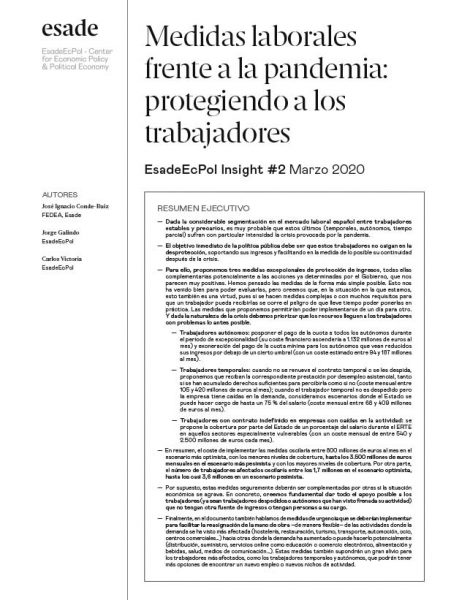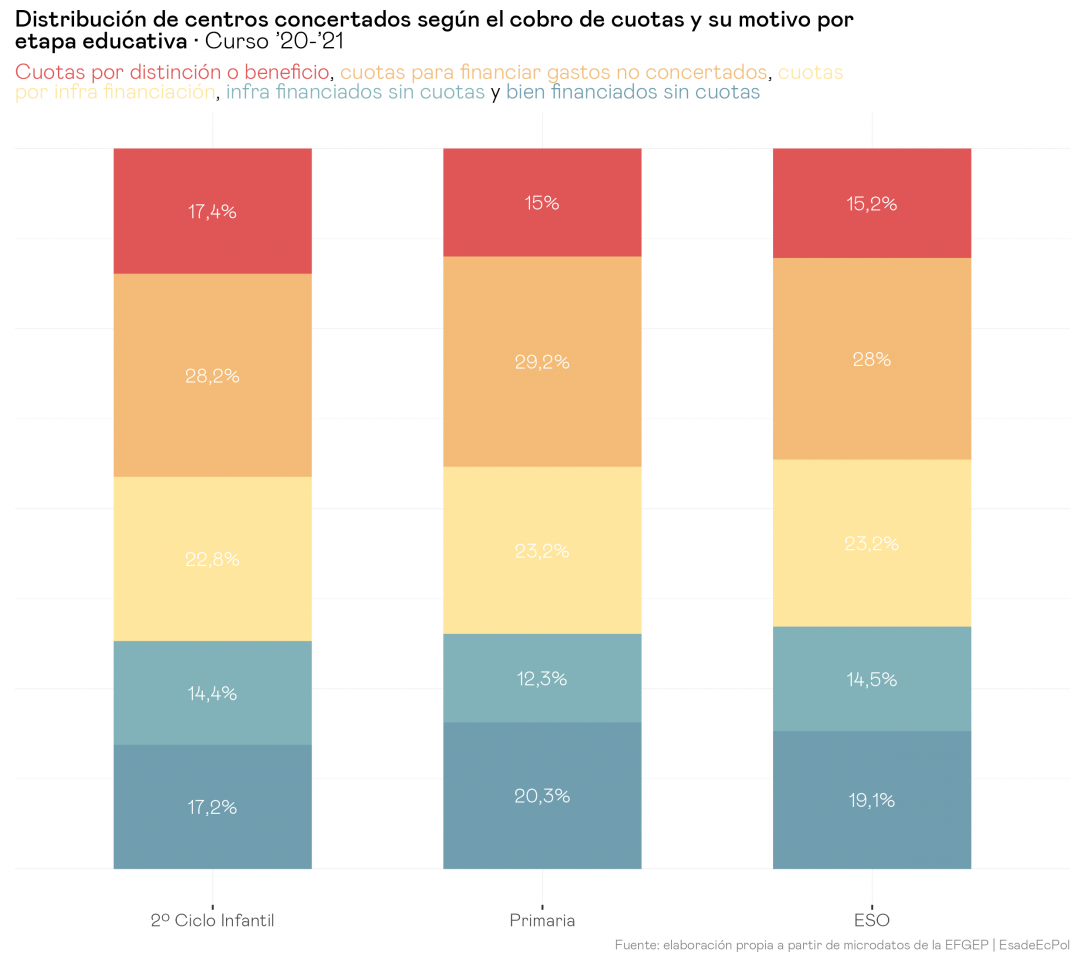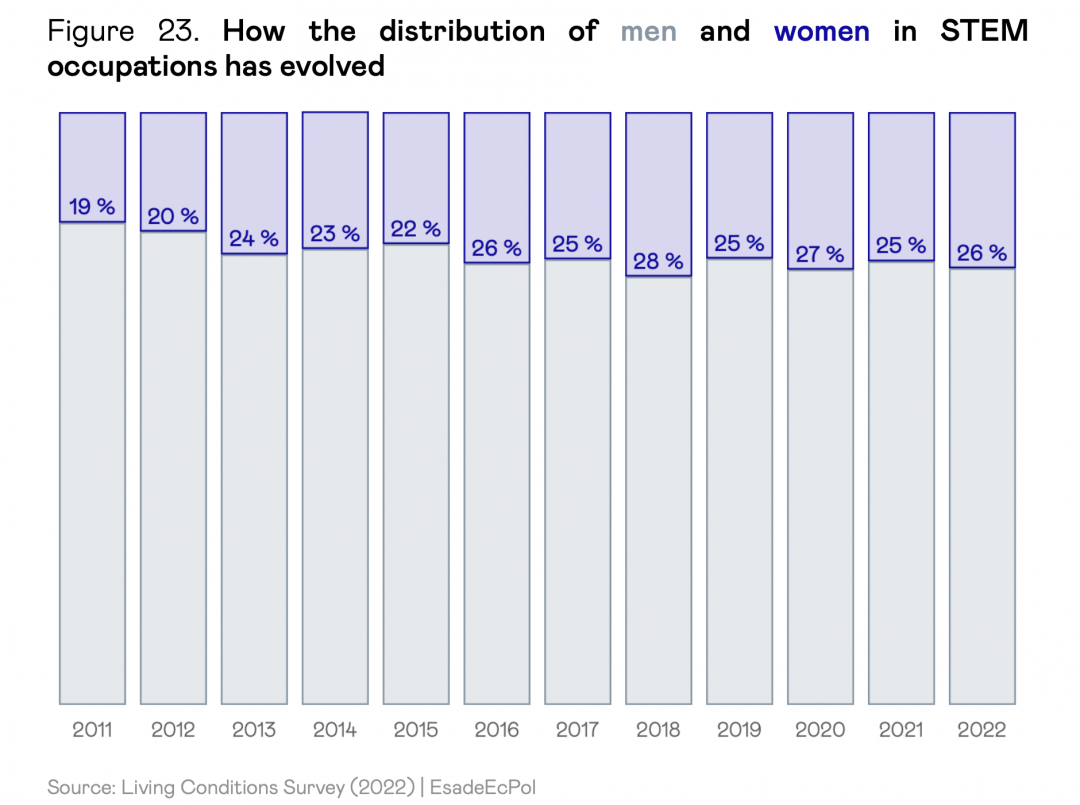
Labour-related measures in response to the pandemic: protecting workers
José Ignacio Conde-Ruiz, Jorge Galindo, Carlos Victoria
19 Mar, 2020
EsadeEcPol Insight #2
Executive summary
- Given the significant segmentation in Spain’s job market between stable and precarious workers, it is highly probable that those in the latter group (temporary, self-employed and part-time workers) will suffer greatly from the Covid-19 crisis.
- The immediate objective of public policy has to be to ensure that these workers do not go unprotected, supporting their income and, insofar as possible, their continuity after the crisis subsides.
- For this, we propose three extraordinary measures to protect their income. All three serve to potentially complement those already adopted by the Spanish Government. These measures are straightforward and could be implemented overnight. We believe that, in the current situation, this approach is beneficial – complex measures or too many requirements would slow down their implementation. Given the nature of this crisis, we need to make sure that resources reach vulnerable workers as quickly as possible.
- Self-employed workers. Postpone all self-employed workers’ Social Security payment obligations while the state of emergency endures (the monthly cost would be 1,132 million euros). In addition, self-employed workers whose income falls below a given threshold should be exempt from paying the minimum quota (estimated cost would range from 94 to 187 million euros per month).
- Temporary workers. Should temporary workers’ contracts not be renewed or if they are dismissed, we propose these workers receive the corresponding unemployment benefits, regardless of whether or not they have accumulated the necessary rights to those benefits (estimated cost would range from 105 to 420 million euros per month). When temporary workers are not fired but demand has fallen, we consider scenarios where the State could cover up to 75% of the salary (estimated cost would range from 68 to 409 million euros per month).
- Workers with indefinite contracts in companies whose demand has fallen. We propose that the Government covers a percentage of their salaries in case of temporary labour force adjustment plans in vulnerable industries (estimated monthly cost between €540 and €2,500 million).
- In summary, the monthly cost of implementing the measures ranges from €800 million in the most optimistic scenario (with the lowest levels of coverage), to €3.5 billion in the most pessimistic scenario (with the highest levels of coverage). The number of workers affected ranges from 1.7 million in the optimistic scenario, to almost 3.6 million in the pessimistic scenario.
- These measures will most likely need to be complemented with other actions if the economic situation worsens. We believe it is essential to support those workers – whether they have been laid off or are self-employed and have seen their activity drop – that don’t have other income sources, or have to sustain their family.
- Finally, we discuss urgent measures needed to facilitate the flexible reallocation of labour – from activities where demand is most affected (including hospitality, catering, tourism, transport, automotive, leisure and retail) to others where demand is likely to increase (distribution, supply, online services such as education, online sales, food and beverages, health and media). These measures will also greatly help the most affected workers, such as temporary staff and the self-employed, who will have the opportunity to find new jobs or new niches of activity.

Read the full article:

José Ignacio Conde-Ruiz
Deputy director of FEDEA and professor at Universidad Complutense de Madrid
View profile



